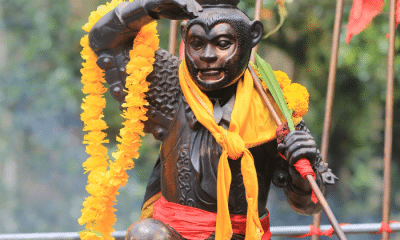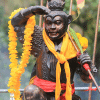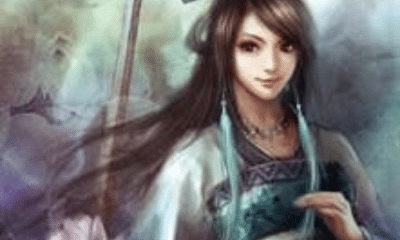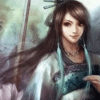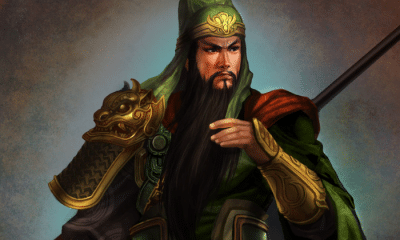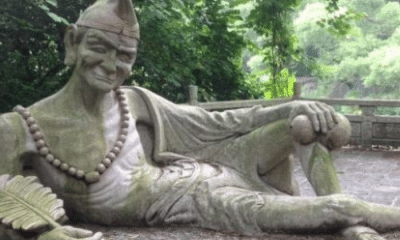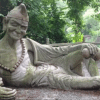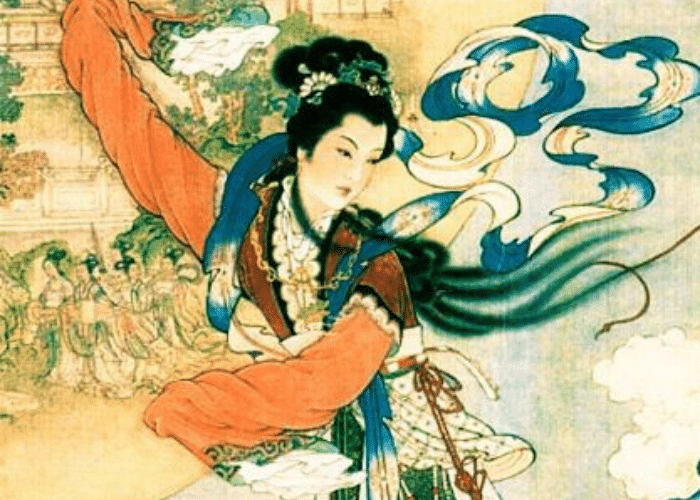
Chinese
Chang’e: The Chinese Goddess of the Moon
Chang’e: The Chinese Goddess of the Moon
Chang’e, the goddess of the moon, never intended to become an immortal. Read on to find out how self-sacrifice led to one of China’s most important holidays!
According to Chinese legends, Chang’e never wanted to become the goddess of the moon.
Her husband was a talented archer. When the world was threatened by an overabundance of suns, the gods called on him to shoot down all but one.
After saving the world, Houyi the Lord Archer came into possession of the Elixir of Life. Drinking the elixir would result in immortality and a place in the heavens.
His wife, Chang’e, was a principled and devoted woman. She was forced to drink the potion to keep it from falling into the hands of a wicked man.
To honor her sacrifice and sense of duty, China celebrates a festival in her honor. The Moon Festival, held during the mid-autumn full moon, is one of the most celebrated holidays in all of Asia.
As important as her festival is, however, there is some disagreement over why Chang’e became the moon. Her story is either one of resolute duty or heartbreaking loss, depending on the teller.
How Chang’e Became the Moon
According to Chinese legends, before the moon came into being there were many suns.
Xihe had given birth to ten suns. They took the form of black birds and lived in a mulberry tree at the eastern edge of the world.
Each day, Xihe took one of her sons on her chariot and flew across the sky. The other nine birds of the sun stayed in their roost and rested.
The birds were rebellious, however, and one day they disobeyed Xihe’s order to stay in place. All ten birds flew across the sky at once.
The heat of ten suns blazed down on the Earth. Fires started, plants withered, and animals were burned alive.
Their father, the agricultural god Di Jun, pleaded with his sons to return to their mulberry tree. They would not listen, however.
Left with no choice, Di Jun asked the archer Houyi for help. Although he hated to see his sons killed, they were soon going to destroy the entire world.
Houyi, the Lord Archer, shot the birds down one by one. When only one sun was left, Xihe pleaded with him to let it live.
From that day on, there was only one sun and the world was never again at risk of burning. Houyi was hailed as a hero and given great accolades.
According to one version of the legend, the grateful people asked Houyi to become their king. He soon became tyrannical and dangerous.
His wife, Chang’e, loved her husband but recognized that he was growing tyrannical. When he sought out the Elixir of Life to become immortal, she grew determined to stop him.
Rather than risk her husband becoming a wicked god, Chang’e stole the elixir from him. She drank it and became a goddess herself, not out of her own desire but to protect the world from tyranny.
Houyi chased after his wife in a fury. Chang’e flew toward the sky and stayed there to avoid him, becoming the goddess of the moon.
Houyi was so bitter over Chang’e’s theft and his lost chance at immortality that he died of anger.
My Modern Interpretation
Another version of the story, however, claims that Chang’e’s motivation for becoming the moon goddess was different.
In this tale, Houyi was given the Elixir of Immortality as a reward for saving the world. Not wishing to leave his devoted wife behind, however, he decided to save it until he was an old man.
Houyi entrusted the elixir to Chang’e, who vowed to keep it safe for him. Others, however, learned of its existence.
While Houyi was out hunting one day, his apprentice Feng Meng broke into the house to force Chang’e to give him the elixir.
Chang’e tried to fight the assailant off, but realized that she was no match for him. She could not, however, allow such a villainous man to become an immortal.
Instead, she drank the elixir herself to keep Feng Meng from getting it.
Chang’e became immortal and was whisked away to the heavens. When given her choice of a home, she chose the moon so that she could still look down on her beloved husband.
When Houyi returned home, he was brokenhearted at the loss of his wife. He mourned her for the rest of his life.
He learned, however, that she had taken a place in Heaven where she could look down on him. He had her favorite cakes and fruits laid out so that she could look down from the moon and see that he was thinking of her.
Houyi’s sacrifice to his wife marked the first celebration of the Mid-Autumn Festival.
One of the most important holidays throughout Asia, the Mid-Autumn Festival of Chang’e is often called the Moon Festival. On the night of the eighth full moon of the year, outdoor altars are set up in Chang’e’s honor.
Mooncakes and other pastries form a major part of the festival’s tradition. They are said to be blessed by Chang’e and bring beauty and prosperity to those who eat them.
The story of Houyi’s mourning is likely a later version of the tale, created to more closely tie the existing Moon Festival traditions into the myth of their origins. Even when the other myth is told, however, the festival is said to honor Chang’e’s personal sacrifice in service of the greater good.
The Moon Festival is celebrated throughout Asia in recognition of local gods and events. Originally a harvest festival, it is a time of thanksgiving and family gatherings.
Today, the festival is known for its food displays, colorful lanterns, and games. In honor of Chang’e, it is also a time of love.
The Mid-Autumn Festival is considered to be an ideal time to find a partner. Young women pray to Chang’e hoping that she will help them find a match they love as much as she loved Houyi.
In Summary
According to Chinese legend, Chang’e was the wife of Houyi, the Lord Archer.
When the ten black bird sun gods flew across the sky at the same time, the gods asked the Lord Archer to save the world from immolation. He shot down the rebellious suns one at a time until only a single sun bird was left.
According to one version of the story, Houyi became a king and was soon corrupted by power and avarice. When he sought to become a god, Chang’e drank the Elixir of Life to prevent him from becoming an immortal tyrant.
In another version, Houyi remained a noble figure. He was given the elixir by the gods, but refused to drink it because he did not want to leave Chang’e to go to Heaven.
His apprentice, however, learned of the elixir and tried to steal it from Chang’e. She was forced to drink it to prevent the thief from becoming a god.
Chang’e became the goddess of the moon so that she could still look down on her husband and feel close to him. To honor her, Houyi laid all her favorite sweets and fruits out under the open sky so she could see them.
This type of offering remains a central part of the Mid-Autumn Moon Festival throughout Asia. A time of celebration, family reunions, and games, the festival is China’s second largest holiday.
Whether in defiance of a tyrant or in service of a loving husband, Chang’e’s ascendancy to godhood is seen as a selfless and noble action. Every fall, people around the world now celebrate the quick-thinking moon goddess’s sacrifice, which saved the world from the possibility of an evil god.


